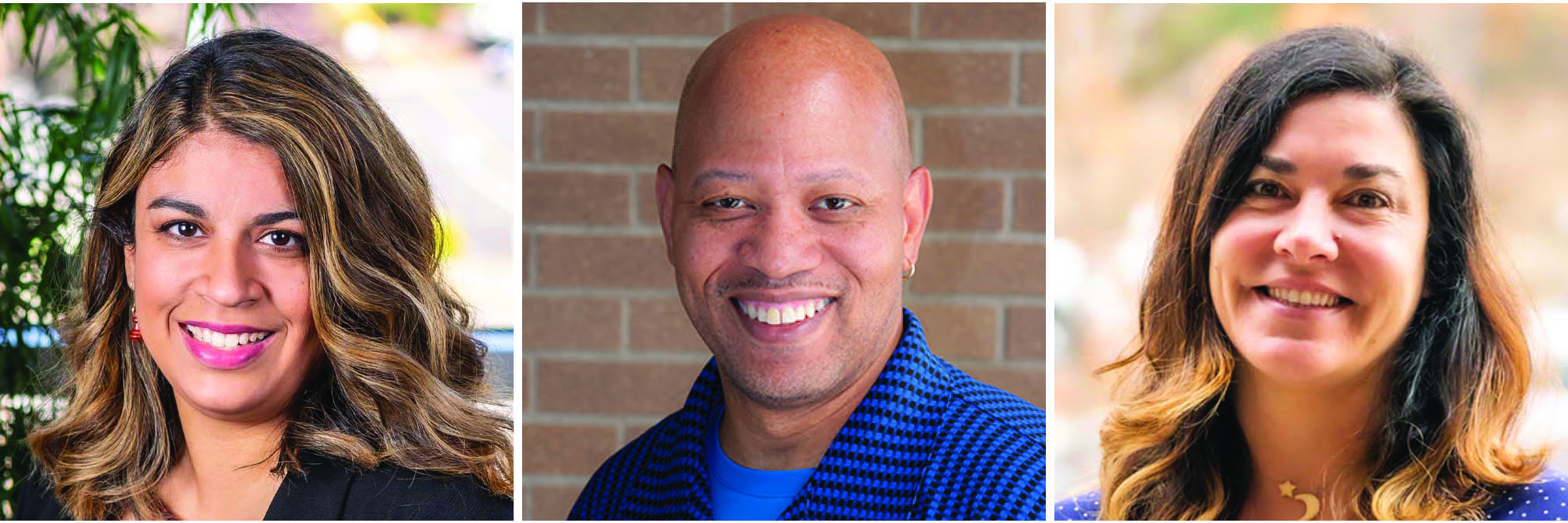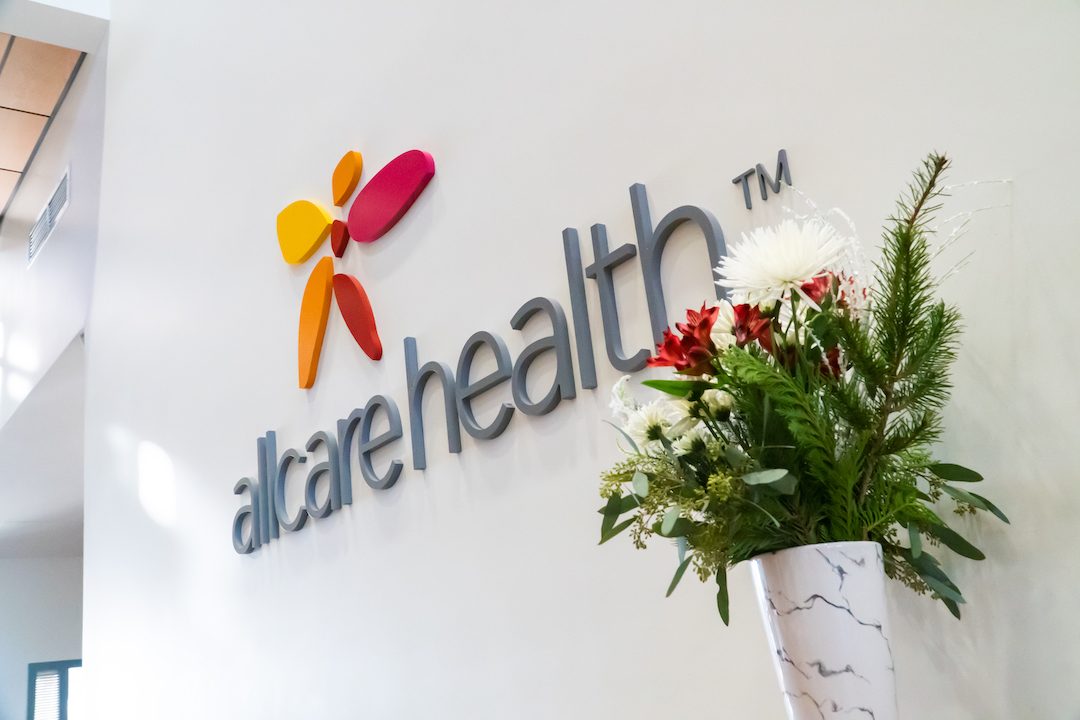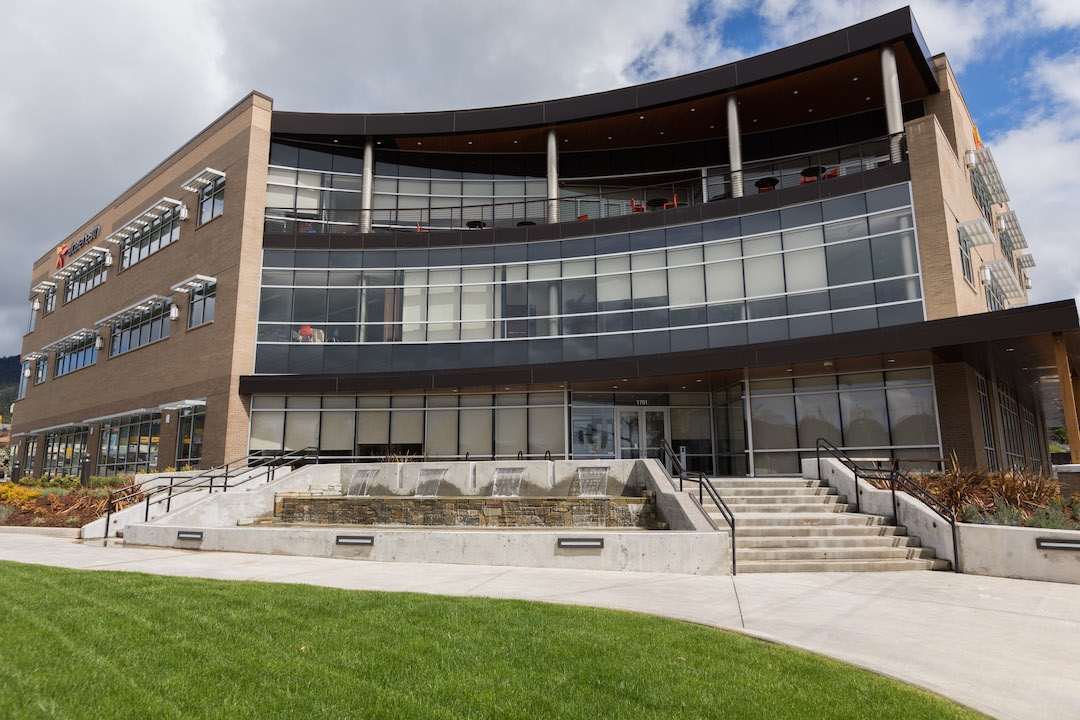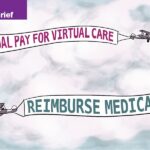Brand Story – How AllCare Health heals individuals and communities through health care equity and language access.
With the arrival of a pandemic in 2020, one reality became abundantly clear: Some people were getting health care, and some were not, often with fatal consequences. Since 2017, AllCare Health has dedicated itself to addressing health care equity and access, introducing programs that seek to remove barriers to entry for everyone.
“We want all people to have access to the care they need to feel well and healthy, regardless of any identity or socioeconomic factor,” explains Riah Safady, Director of Health Equity, AllCare Health. “Overall, we have a long way to go to achieve health equity and COVID shone a light on the barriers faced by communities across our nation.”
Barriers can arise due to many factors, including language, ethnicity, race, physical ability, gender, sexual orientation and socio-economic status.
AllCare Health, a Coordinated Care Organization (CCO) in Southern Oregon, regularly witnesses the far-reaching effects of health care inequity in Josephine, Jackson and Curry counties. Communities as a whole suffer: Chronic conditions rise, workforces dwindle, health care costs swell, emergency rooms fill and economies shrink.
“Through our training and education programs we are trying to let our network and our community know that health equity is a collective issue,” says Quinn Arrington, Equity Manager and Tribal Liaison, AllCare Health. “We’re all in this together, and if we all address it, we can eliminate these disparities, and that’s a win-win.”
AllCare Health engages with community organizations and network providers to identify the immediate needs and systematic injustices standing in the way of health care inclusion. Under its Health Equity and Inclusivity Action Team, their Steering Committee and six work groups prioritize community engagement, culturally specific material, health equity data, policy, training and education, and language access.
While health care inclusion has long been the CCO’s priority, it garnered renewed attention in 2017 when Stick Crosby, then AllCare’s Network and Health Equity Manager, began stratifying member language data by provider.
“It revealed that provider offices were saying that they spoke the language, but they didn’t have the proper number of qualified language interpreters,” explains Kristina Espinoza, Language Access Manager, AllCare Health. “They were just pulling anyone who potentially spoke it, even if they were untrained.”
 From left to right, Riah Safady, Quinn Arrington, Kristina Espinoza.
From left to right, Riah Safady, Quinn Arrington, Kristina Espinoza.
This means that the region’s large Hispanic population has inadequate resources and sometimes has to rely on friends and family as informal interpreters, which goes against regulation.
Challenges around scheduling an appointment, filling out forms and communicating with providers quickly become reasons why individuals never acquire the necessary care. If they do eventually receive medical interventions, they tend to occur much later when emergency room visits or chronic conditions are unavoidable, negatively impacting local community’s health and wellbeing.
“I have seen this become a matter of life and death,” Espinoza adds. “You can watch people’s health improve dramatically when they have access and the necessary resources available.”
The CCO’s language access initiatives include a 64-hour Interpreter Training Program. Any person working for a network provider or in the community can become a state-qualified interpreter, bringing a new career path and more interpreters to the region. Providers utilizing language services can also receive reimbursements from AllCare Health.
The organization’s initiatives reflect the shifting needs of the region and the priorities of community work groups. Its action plan stems from listening sessions with local partners, including the Public Health Department, the Community Advisory Councils, the Deaf and Hard of Hearing Work Group, the Regional Health Equity Coalition, the LGBTQ Work Group and more.
Its participation in a needle syringe program, for example, arose from its partnership with the HIV Alliance. And during the pandemic, the team worked with the Public Health Department in Jackson and Josephine counties to hold vaccine events for BIPOC communities.
“There’s historically been a lack of support and resources in tribal communities overall,” explains Arrington. “When the pandemic hit, the disparities became more pronounced with the lack of access to resources, vaccines and COVID supplies.”

In 2021, AllCare Health conducted a survey and asked Black Rogue Valley residents what concerns they had about visiting the doctor. Respondents voiced that they were unable to identify with their providers. As a result, AllCare Health successfully secured a Black provider.
Arrington spoke to provider Lakeisha Sheaffer and she shared that when patients see her, they are more relaxed in the appointment and they spread the word to the community that there is a very good Black provider in Jackson County.
“We’re currently trying to hire more providers of color in the Rogue Valley, particularly in Josephine County,” Arrington adds.
With each of these steps, AllCare Health moves closer to health care that better reflects the diversity of the region’s population and its needs.
“We continue to see barriers around understanding the health care needs of LGBTQ+ communities, a lack of providers of color and an inability to create an experience for a client that feels informed,” Safady adds.
To help catalyze change in every corner of the region, it conducts complementary assessments and consultations for its provider network, boosting access by addressing policies and providing trainings where necessary.
AllCare Health holds itself to the same standard as its providers, submitting a health equity plan, providing internal trainings and reporting outcomes.
“Next week we will cofacilitate a health equity and cultural agility training for our internal workforce, and plan to continue offering trainings to our provider network and community partners,” Safady says. “Cultural agility speaks to the fact that we need to stay flexible. It’s an ongoing commitment to growth and education.”
Continued community and internal education will remain a priority, because although some simple solutions stand ready for deployment, resistance to change and the realities of systematic oppression hinder their adoption. Despite the barriers to health care access that continue negatively impacting the nation, AllCare Health also celebrates the progress unfolding.
“After doing this work for the last few years, I have seen a small awakening happen,” Espinoza concludes. “The wheels are turning. People in the community and provider offices are becoming more aware and wanting to learn.”
Brand stories are paid content articles that allow Oregon Business advertisers to share news about their organizations and engage with readers on business and public policy issues. The stories are produced in house by the Oregon Business marketing department. For more information, contact associate publisher Courtney Kutzman.





